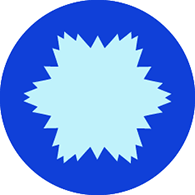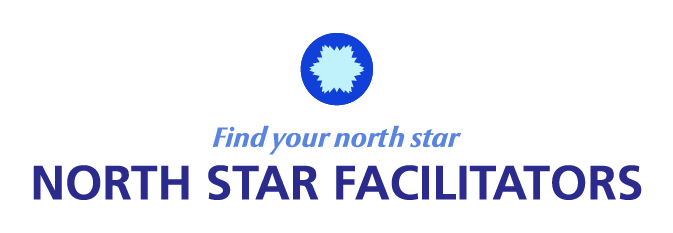About Barbara MacKay

Certified Professional Facilitator and Assessor
IAF Hall of Fame Inductee
0+
years experience0+
projects facilitatedI am not currently accepting facilitation jobs or training others to facilitate. Soon, however, I will be delighted to assist with facilitation related to climate crisis work. Please find many amazing facilitators and facilitation trainers on our Associates page. I did want to share my career journey in facilitation in case it inspires you on your facilitation journey. See below for this.

- 1995-2001: Winnipeg, Manitoba Canada. Built practice to include 7-8 associates; facilitated mostly large government, school, health and Union based groups working on large strategic change initiatives
- 2002-2012: Portland, Oregon, USA. Rebuilt practice with emphasis on Technology of Participation (ToP) training; Anti-Racism work with Luna Jimenez Institute for Social Transformation; and work with Social Justice NGO’s and government agencies
- 2013-2020: Portland, Oregon, USA. Building both a virtual and international practice focused more on training and diversifying facilitation field; working with NGO’s, government and education
- 2021-2023: Victoria, British Columbia, Canada. Working with First Nations on creating Indigenous law for Childcare Services; mentoring international facilitators and transitioning business to diverse facilitators.
How I “fell into” facilitation
 I discovered facilitation accidentally. I was working as a researcher for a social and environmental impact assessment consulting company in the 1980-90’s. Many of my assignments were with indigenous peoples in northern Canada. I remember one of the first times I started facilitating without knowing it was facilitation. An interview I was conducting with one trapper (a person who makes their living by trapping small to larger animals to sell their fur) became a group of 15-20 hunters and trappers over the course of several hours. I realized I had to change the way I was asking questions. I began to welcome each person and to draw on the unique experience of each resource harvester. Then as I noticed patterns in their thinking, I would summarize what I was hearing test out these themes with them.
I discovered facilitation accidentally. I was working as a researcher for a social and environmental impact assessment consulting company in the 1980-90’s. Many of my assignments were with indigenous peoples in northern Canada. I remember one of the first times I started facilitating without knowing it was facilitation. An interview I was conducting with one trapper (a person who makes their living by trapping small to larger animals to sell their fur) became a group of 15-20 hunters and trappers over the course of several hours. I realized I had to change the way I was asking questions. I began to welcome each person and to draw on the unique experience of each resource harvester. Then as I noticed patterns in their thinking, I would summarize what I was hearing test out these themes with them.
I ended up doing many large group interviews for this work. In hindsight I was probably conducting what have become known as “focus groups”. A few years later I began to facilitate large environmental conferences looking for example at the decline of beluga whale species in the Hudson Bay area (northern Canada again). Another event I was hired to facilitate (I was now recognized by my company as having some experience with this new competency) was called Extender Producer Responsibility. This involved helping a Canadian federal government agency to collaboratively create “recycling” policies. The aim was to encourage companies to take responsibility for the disposal of products at the end of their useful life.
When I was in the throes of all that challenging work, I realized that a corporate 60-70 hour work week with a lot of extended travel wasn’t working for me or my young family. I left that job without no idea of what I would do next. Instead, I invented an exercise for myself where I mapped out a timeline of my major life events looking at what I had enjoyed or not enjoyed. From this exercise, I realized I had always been a “facilitator” – a person who tries to help make things easier for others by helping them think well together. The timeline exercise, I later learned already existed in several formats and is recognized as a powerful group facilitation technique. It was 1995.

Getting good at facilitation
 The International Association of Facilitators (IAF) came into being in 1994. So I was lucky. My lifetime mission and passion already actually had an international organization associated with it.
The International Association of Facilitators (IAF) came into being in 1994. So I was lucky. My lifetime mission and passion already actually had an international organization associated with it.
I feel extremely fortunate to also have discovered some of the best facilitator training in the world through the Institute of Cultural Affairs. I learned and practiced the Technology of Participation skills diligently and exhaustively for the next decade or more.
I became a certified professional facilitator with IAF in 2001 and an assessor for other certification candidates in 2002. This was indeed a “brilliant” decision on my part. It was brilliant for me, because I have loved the chance to see other experienced facilitators in action every time I’m asked to be an assessor. I’ve assessed for events all over the world. What a joy to see others who care as much as I do about this profession striving to improve their skills!

My philosophy of facilitation
I never turned away difficult facilitation assignments. I often did not have the hindsight of knowing how challenging something might be. There are probably quite a few client jobs I wouldn’t have done had I known how hard they would be. However, it has given me great strength to do very challenging facilitation jobs. And, it really helped me know how to mentor others in a kind and compassionate way as they also struggle with difficult assignments.
I’ve been on this journey full time for almost 30 years. Our website is meant to delight and fulfill your needs around exploring the profession and competencies of facilitation. We are in the process of turning it into even more of a community resource.
